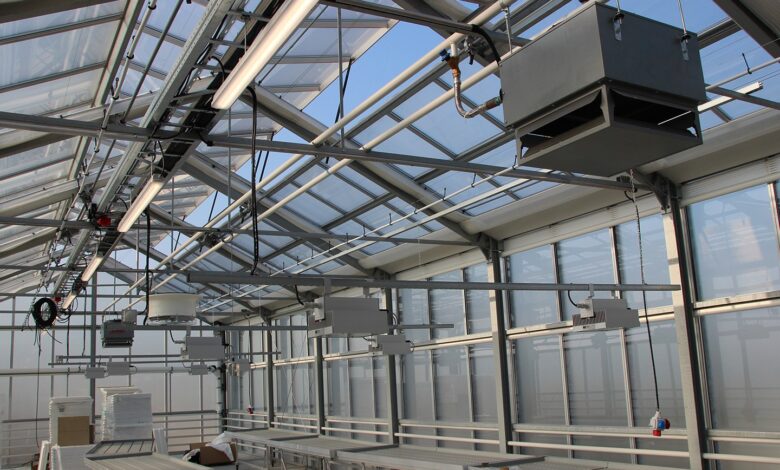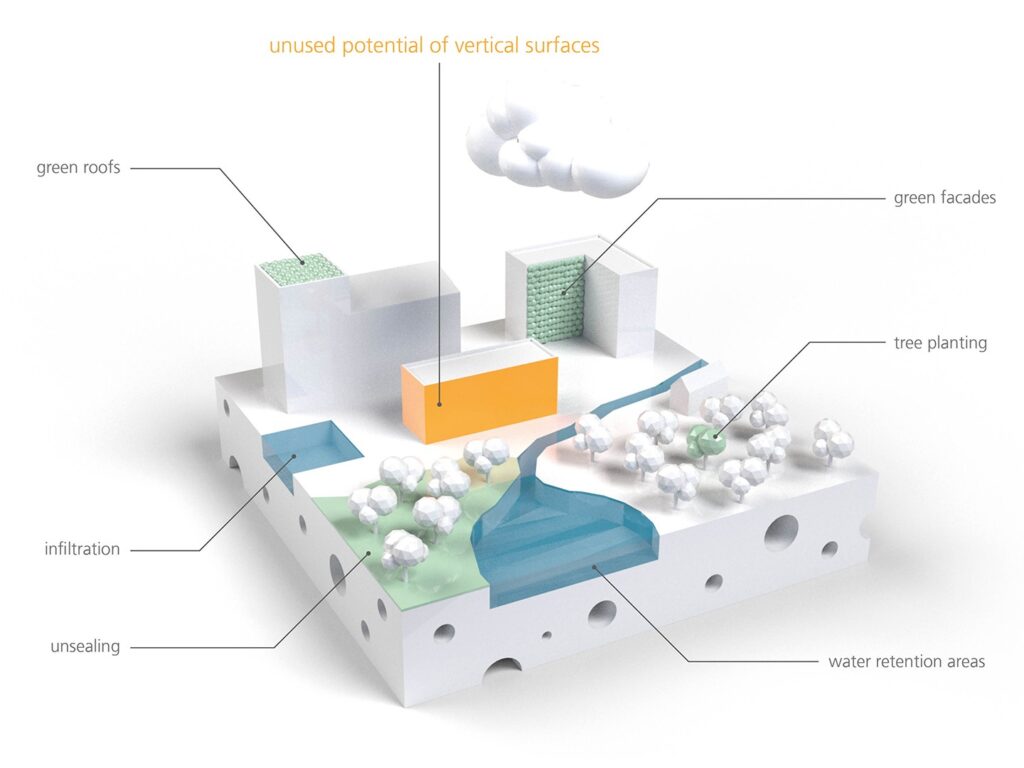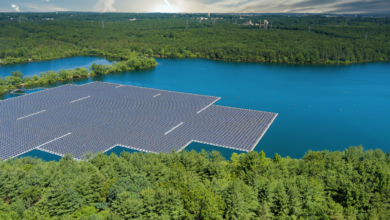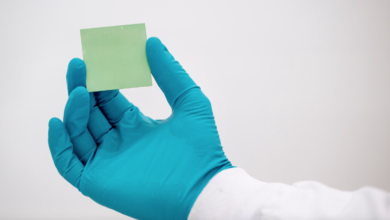Fraunhofer reinvents thermal insulation with “sponge walls” and transparent laminated roofs

For the lucky ones who will pass through Munich between 17 and 22 April we suggest a visit to the Bau 2023 fair, dedicated to innovative solutions for the construction of the future. Among the experiments on display there will also be two solutions for thermal insulation of roofs and walls, developed by the researchers of the Fraunhofer UMSICHT: the “Light-Light-Roof” and the Vertical Water Sponge. Two curious names for two equally interesting strategies that allow for reducing resources, counteract the effects of climate change and create thermal insulation for increasingly effective buildings.
“Light-Light-Roof”
The first of the two systems being developed by the researchers of the Fraunhofer UMSICHT is called “Light-Light-Roof”, a solution for transparent roofing. The aim of the project is to reduce the weight of construction and of course the environmental weight of glass covers, replacing them with a combination of lighter and more modular sheets.
The system developed so far has allowed a reduction of 75% in the weight of the material with positive effects on the overall construction balance. “Light-Light-Roof” involves the use of an external glass foil, combined with an internal roof in mobile, transparent fabric and above all capable of transmitting the sun’s rays.
read also Thermal insulation: smart material which changes color under an external electrical stimulus
The latter component is coated with an ETFE film, that is, an extremely light ethylene-tetrafluoroethylene copolymer capable of letting in 95% of the light. The two surfaces, glass exterior and ETFE interior, are especially separated in order to allow air circulation, transforming into efficient thermal insulation of the roof.
The researchers are also studying how to make the inner layer customizable by equipping it with sensors and tools useful to the inhabitants of the interior spaces.
This particular modular solution is being tested on the greenhouse of the Altmarktgarten Oberhausen, the roof building of the Fraunhofer UMSICHT for urban vegetable cultivation.
Vertical Water Sponge, the vertical water retention system

Between drought and floods, the problems of climate change that we will face in the cities within the next few years will guide constructive and planning choices. As the second complementary study to be presented at the upcoming Munich Bau Fair 2023, researchers at the Fraunhofer UMSICHT have focused on the lack of permeability of cities.
The built surface far exceeds the green areas “permeable” to water. This leads to flooding phenomena that are increasingly frequent and increasingly costly in economic and human life terms. The solution used by the Fraunhofer is called Vertical Water Sponge. A vertical water retention system consisting of a carrier and permeable outer shell, and a storage core for mineral water. Ideally, this central core could be made with recycled materials from previous constructions, such as bricks, limestone, cellular concrete, mineral elements with excellent storage and water-conduction properties.
The system is flanked by a drainage system on the roof so that rainwater flows into the “sponge walls“.
Obviously, the researchers hypothesized a double benefit: first the temporary accumulation of large quantities of water and second the creation of thermal insulation for evaporative cooling. The latter is considered one of the most promising solutions to combat urban heat islands along with the greening of cities.





